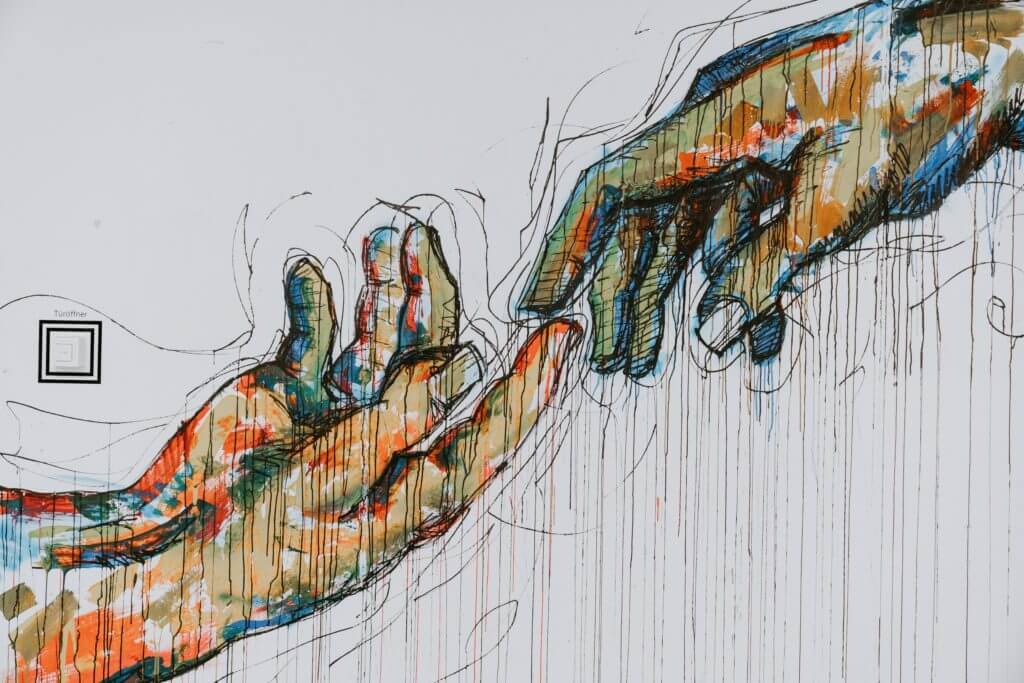Covid-19 has turned our economy upside down, forcing retail companies to adapt in a highly reactive way and participate in the national effort to combat this crisis. Numerous solidarity initiatives have emerged, strengthening the link between the public and private sectors, and fostering sometimes surprising partnerships.

Photo Credit: Unsplash @unitednations
Retailers' solidarity initiatives
To help combat the spread of the virus and offset potential shortages, some retailers have not hesitated to offer their stocks of products or raw materials.
The company Pernod Ricard donated 70,000 liters of pure alcohol to the Cooper laboratory in March, for use in the manufacture of hydroalcoholic gel. Cooper has also undertaken to donate the equivalent amount to health-related associations.
Following the announcement of conclusive tests to transform the Easybreath diving mask from Decathlon scuba diving mask into a respirator, the company blocked sales of these products to the general public, in order to offer its entire stock to hospitals.
9These solidarity initiatives enabled us to rapidly mobilize the resources needed to implement immediate and effective solutions to this health crisis.
National solidarity: interdependence between private & public sectors
The LVMH LVMH at the end of March converted three of its French production sites, usually dedicated to its perfumes and cosmetics, to the production of hydroalcoholic gel. This initiative made it possible to supply 12 tons of hydroalcoholic gel per week free of charge to French hospitals during the peak of the epidemic. Surplus production is now redistributed as donations to supermarket chains.
Textile retailers (ready-to-wear, lingerie, household linen), such as Lacoste, Petit Bateau, Chantal ThomassPassionata or Blanc des Vosges have adapted their workshops to produce reusable fabric face masks. Most of these brands used textiles from their own raw material stocks, and called on their employees on a voluntary basis. Distribution then varied from company to company. Primarily intended for front-line businesses and public services, these masks were sold or donated in order to equip the wider population. For example, some local residents received Lacoste or Chantal Thomas masks in their letterboxes, courtesy of their local council.
Unlike hydro-alcoholic gel and surgical masks, Bercy did not regulate the sale price of these cloth masks, believing that the manufacturers were not interested in making a profit.
In these times of crisis, national solidarity is essential to provide an effective response on a large scale. These examples demonstrate the interdependence of the private and public sectors. The latter sometimes has more interest in relying on the flexibility and economies of scale of retailers rather than internalize certain large-scale production processes.

Photo Credit: Unsplash @purzlbaum
Covid: a trigger for setting up sometimes surprising partnerships
On a global scale, companies have joined forces and taken advantage of opportunities to innovate and adapt to these new economic challenges.
Retail companies have teamed up with delivery specialists.
Examples include the Carrefourgroup, which in early April forged a partnership with Uber Eats. Later joined by the brands of the Casino and the Deliveroo delivery platform. The aim of these partnerships is to accelerate the delivery of essential products (food, hygiene and cleaning products) on a national scale. Capitalizing on the volume of stocks and speed of order preparation in the retail sector, combined with the agility of delivery applications, delivery times for these products have been reduced from several days to one hour; this service obviously comes at an additional cost.
The link-up between Carrefour and Uber Eats is part of a long-term partnership objective, with the companies looking to diversify together into other markets and countries with common implementation (Brazil, Italy, Spain), enabling the Carrefour group to diversify its service and logistics approach.
In Germany, McDonald's and Aldi have pooled their employees for a limited period as part of an inter-company mobility scheme. While restaurants were closing, supermarket chains were particularly busy. To cope with this influx, a nationwide effort was put in place via a "staff pact", enabling voluntary employees at McDonald's to join the Aldi teams. These temporary contracts, which allowed employees to return to their original company afterwards, enabled rapid solutions to be found to guarantee supermarket supplies nationwide.
To symbolize these unexpected partnerships aimed at tackling the global health crisis, we should also mention Google and Apple, who have collaborated to design a tracking system for health authorities. We're not talking about retail here, or even an application, but "an API (application programming interface) that health agencies can integrate into their own applications", as they put it. Development will then be managed by each agency. Tracking applications rely on Bluetooth, which uses short-distance waves to notify previously crossed devices. 22 countries have already requested access to the programming interface.
Google and Apple have nevertheless imposed conditions of use on countries: the application must only be available on a voluntary basis, must not collect geolocation data, and must not give rise to commercial exploitation. In addition, only one health agency per region or state may use it.
The French government preferred to use other tools, in order to retain control of its tracking solution. The StopCovid application went live in France on June 02.
|
The word "Crisis" in Chinese is made up of two characters: one meaning "Danger" and the other "Opportunity". Whether through donations, production site reconversions or the creation of unexpected partnerships, retail companies have shown great solidarity. By adjusting product flows, simplifying the transfer of human resources, and pooling expertise and technological skills, they have been able to protect populations and fight this global pandemic together. |
By Jessica Savey.

